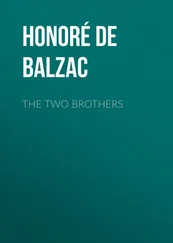LOOKING OUT OF the window of his Deutsche Lufthansa flight, Otto was struck by the fact that viewed from the air the layout of Heathrow formed an almost perfect Star of David.
He wondered if that was ironic. The British were supposed to be famous for their irony but he had never met a single one who could give him a clear definition of the word. Most of them seemed to think it just meant bad luck.
Otto decided that it was ironic. That shape, which had meant absolutely nothing to him until he was thirteen years old, and which thereafter had come to mean violence, abuse and death, was the last thing of Britain he saw as his plane disappeared into the clouds.
On his way back to Berlin. Where they had no doubt stitched that very same shape to the coats of his mother and his aged grandparents in order to mark them down for murder.
The stern-looking male attendant interrupted his reverie, handing out the complex and lengthy landing forms for the German Democratic Republic.
East Germany.
Otto folded down the little table on the back of the seat in front of him and took out his passport. Pausing for a moment to stare at it. He always paused for thought when holding his passport.
Such a precious document. So stately and imposing with its stiff, royal blue jacket. The copperplate text on the inside cover archaically stern and censorious. ‘Her Britannic Majesty requests and requires…’ It sounded good even with the Suez debacle only just concluded. Even with every editorial in the land screaming that Her Britannic Majesty was not in any position to request and require anything from anybody unless the Americans said she could.
Lots of people said Britain was sunk.
But those people were idiots, as far as Otto was concerned. Being British still meant an immeasurable amount. You just had to be born somewhere else to appreciate it.
Otto finished his forms. The first German document he had filled in for seventeen years, and the first he had ever seen which did not require him to state whether he was Jewish. He put away his passport and took a pull of scotch from his hip flask. He had not expected the airline to offer anything as bourgeois as an in-flight drink and so had come prepared.
He lit up a Lucky Strike, took another pull of whisky and tried to relax.
The pilot’s voice came over the tannoy announcing that they had crossed the Channel and were flying over Holland.
Otto found himself smiling.
Holland. He had only been there once, passing through on a train. But he had lost his virginity there at a hundred kilometres an hour, so he always felt benevolent about the place.
He’d been with the girl whom he must shortly confront.
What would she look like now? he wondered.
Silke Krause.
Would her hair and skin still be golden? Or had a decade of service to the puppet masters in the Kremlin turned her pale and grey? She was only thirty-five of course, a year younger than him, but Otto had met Stasi officers before, masquerading as travel guides for East German delegations to Britain. Had Silke become like them, grim and unsmiling, dull hair pulled back into a starchy bun?
He would find out soon enough.
They landed at Berlin Schönefeld airport and were herded together into the forbidding customs and immigration hall. Otto found himself thinking that Billie would approve of the building. Plenty of concrete. Funny to be in Germany, thinking of Billie, having spent seventeen years in Britain thinking of Dagmar.
Funny to be in Germany at all.
It was like a dream. To be surrounded by German voices again after so long. He was back. Back in Berlin. Yet feeling further from home than ever.
He wasn’t in the hall long. If anything confirmed his assumption that he was the subject of a Ministry of Security sting, it was the speed with which he was ushered through the arrival formalities. His name was obviously recognized at the first barrier and he was fast-tracked from that point on. While his fellow passengers resigned themselves to hours of queues and questioning, Otto was nodded and stamped past desk after desk.
Of course, while the machinery of the state might be oiled by hidden forces, nothing could increase the speed of the physical machinery of the airport, nor the complexity of the bureaucracy under which it was run. Therefore having been spat out into the luggage hall in record time, Otto now found himself having to watch as most of the people who had been on the plane with him caught up while he waited for his bag.
It arrived at last, not on a moving belt as was now common in Western airports, but in a densely packed cage pulled by a tractor, which the passengers had to unload themselves, struggling to find their own under the weight of other people’s.
Finally Otto spotted his old battered case being hurled to one side by a sweating traveller, and he was able to make his way into the arrivals hall. It was the same little case he had brought with him out of Germany seventeen years before. It was still in good condition; in the army he had used a kit bag, and he had not travelled since.
That case had stood on the floor of the first-class compartment when he and Silke had made love on her bunk. Otto wondered if she would recognize it.
He was in a hurry now, suddenly anxious to get the meeting over with. The whisky buzz he had given himself on the plane was wearing off and he had decided it would not be sensible to give himself another.
Searching in his pocket for the little leather notebook in which he had written the address she had given in her letter, Otto scurried past the final line of customs officers unchallenged and began looking about for a sign to the taxi rank.
Perhaps that was why he didn’t see her.
He was looking up. At the signs.
He hadn’t expected her to meet him.
‘Ottsy.’
He heard the voice and in those two syllables he knew.
Stopping dead, he stared about himself.
Shocked. Confused. Looking from one grey dowdy figure to another. Searching the monotone collage of depressed humanity. Cheap threadbare clothes. Sallow skin. A smile or two here and there but only brave ones. Weary ones.
‘Ottsy, I’m here. I’m over here.’
That voice. That same old voice. Leaping across seventeen long years.
Turning around, he saw her.
And yet he didn’t.
The woman he saw was a replica. The Soviet version of the one who owned the voice. As if they’d tried to make one like her but couldn’t. Just like their awful gutless cars and leaking, lumpy refrigerators. Recognizable as of the same species as their glamorous, stylish, exciting American and European counter-parts, but so obviously cheap, tawdry imitations.
The skin didn’t glow. The hair didn’t shine. The lips were still full but showed the pinched, pursed lines of a forty-a-day habit.
The eyes were the same, though. Big, deep and dark.
And sad. That hadn’t changed either. Those eyes that had been sad since the morning of 1 April 1933.
‘Dagmar?’ Otto heard himself saying. ‘Is that you?’
She flinched very slightly. Perhaps she knew what had flashed across his mind. Perhaps she thought the same thing every day herself, in her chicken coop Stalin-approved apartment, exchanging tired, worn-out glances with her mirror while she waited to see if the hot water would work or not.
‘Yes, Ottsy,’ she said. ‘Of course it’s me.’
She was standing perhaps three metres from him. People bustled between them. He stepped towards her, directly into somebody’s path.
‘ Entschuldigen Sie mich, bitte ,’ he heard himself saying in that once familiar tongue, but the person merely grunted and was gone.
They were less than two metres apart now, but having been stopped once he did not seem to know how to cover the final distance.
Читать дальше












